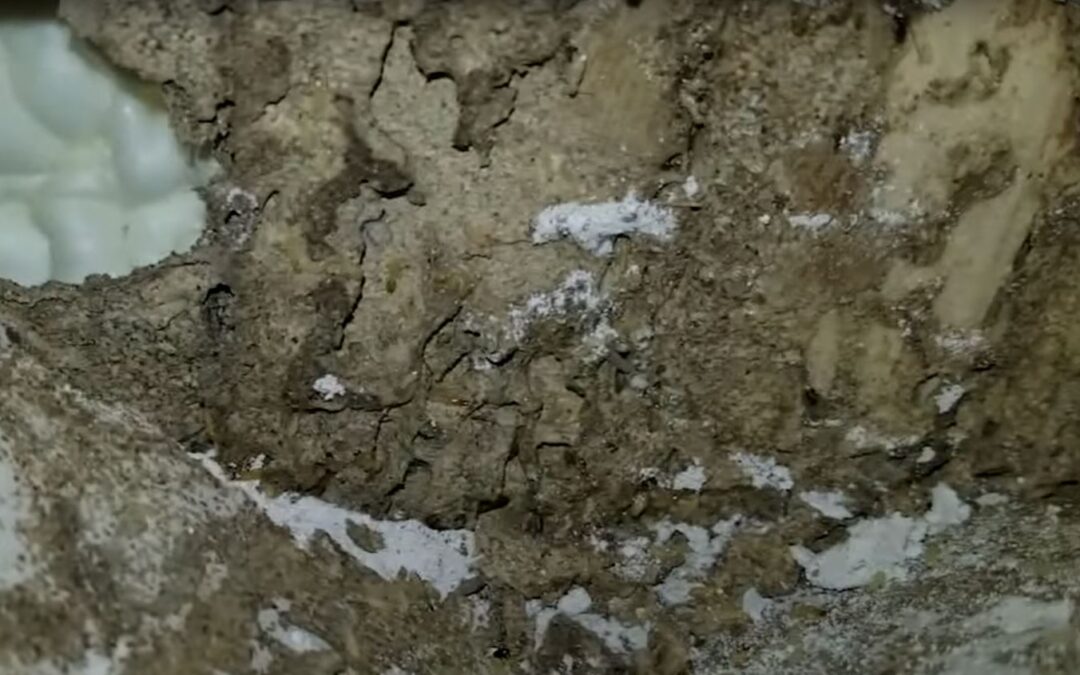Termite Health Risks – What you need to know
Termites, commonly encountered in homes across Melbourne including suburbs like Frankston, are known more for their potential structural damage to properties rather than direct health risks to humans. Here’s an overview of the health and safety aspects related to termites:
Health Risks from Termites:
While termites do not pose a direct threat to human health like some other pests, there are some health considerations to be aware of:
- Allergic Reactions and Respiratory Issues: For some people, termites can be a source of allergens. Especially, the saliva and secretions from soldier termites can trigger allergic reactions, which may include skin irritation, runny nose, and sore throat. In severe cases, exposure to these allergens can lead to anaphylactic reactions. Moreover, termite infestations can increase moisture levels in homes, potentially leading to mold growth which can exacerbate respiratory issues, particularly in individuals with existing sensitivities.
- Structural and Electrical Hazards: Termites primarily feed on wood, which can compromise the structural integrity of buildings. Over time, this can pose a risk of injury from structural failures. Additionally, when termites burrow into wooden structures, they may come into contact with electrical wiring. This can create a fire hazard and increase the risk of electrical shock.
Detecting Termite Infestations:
Early detection of termite activity is important for minimizing damage and associated risks. Indicators of potential termite problems include termite droppings (frass), mud shelter tubes on wood structures, dips or holes in hardwood floors, and mud spots or peeling paint on walls.
Termite Control and Management:
Given the potential damage termites can cause, engaging professional services like Professional Termite Control Melbourne for regular inspections and effective control measures is advisable. Specialists in termite control can provide tailored solutions to protect your home from termite infestations, thus safeguarding both the structural integrity of your property and your family’s health.
In conclusion, while termites do not pose a direct health threat to humans through bites or stings, the indirect risks associated with allergies, respiratory issues, and structural damage make termite control an important aspect of home maintenance in Melbourne.
Additional Aspects to Consider in Termite Management
In addition to health and safety concerns, there are several other aspects to consider when managing termite infestations:
- Long-Term Property Protection: Regular termite inspections are crucial for long-term property protection. Early detection and treatment can prevent extensive and costly damage.
- Choice of Treatment Methods: Various termite treatment methods are available, ranging from chemical barriers to termite baiting systems. Each method has its pros and cons, and the choice depends on the extent of the infestation and the structure of your property.
- Preventative Measures: Implementing preventative measures can significantly reduce the risk of termite infestations. These include maintaining a dry environment, repairing leaks, and avoiding wood-to-soil contact around the property.
- Environmental Considerations: Some termite treatment methods can have environmental impacts. It’s important to consider eco-friendly options and discuss these with your pest control professional.
- Insurance and Warranty: Understanding what your home insurance covers in terms of termite damage and considering a warranty for termite treatment services can provide additional security and peace of mind.
Questions on Termite Management and Risks
Do Termites Pose a Direct Health Risk to Humans? No, termites do not directly harm humans through bites or stings. Their primary threat is to the structural integrity of buildings.
Can Termites Cause Allergic Reactions? Yes, some people may experience allergic reactions to termite saliva or droppings, which can include skin irritation, a runny nose, or sore throat.
Are Termites Known to Carry Diseases? Termites are not known to carry or transmit diseases to humans.
How Do Termites Affect Indoor Air Quality? Termite infestations can lead to increased moisture levels, promoting mold growth which can adversely affect indoor air quality.
Can Termite Activity Lead to Structural Damage? Yes, termites feed on wood, potentially causing significant structural damage to buildings over time.
Is Termite Damage Covered by Home Insurance? Most home insurance policies do not cover termite damage, so it’s important to conduct regular inspections and preventive treatments.
How Often Should I Have My Property Inspected for Termites? It’s recommended to have professional termite inspections annually, or more frequently in areas with high termite activity.
What Are Common Signs of a Termite Infestation? Signs include termite droppings, mud tubes on walls or foundations, hollow-sounding wood, and swarms of winged insects.
What Are the Best Methods for Termite Prevention? Preventive measures include eliminating moisture sources, removing wood-to-soil contact, and regular inspections.
Are DIY Termite Treatments Effective? DIY treatments are generally not as effective as professional services and can sometimes worsen the situation.
Can Termites Affect Electrical Wiring? Yes, termites can damage electrical wiring, posing a fire hazard and risk of electrical shock.
What Should I Do If I Find Termites in My Home? Contact a professional termite control service immediately to assess the situation and recommend appropriate treatment methods.

